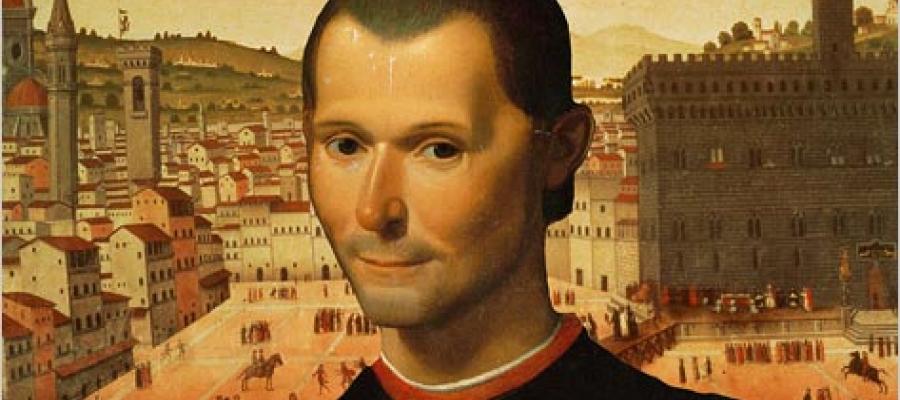Machiavelli
Sep 21, 2014Niccolò Machiavelli is best known for arguing that people in power should use deception, force, and manipulation if those tactics are necessary to achieve their ends.

The Italian political philosopher Niccolò Machiavelli is revered by some for being an astute thinker, a pragmatic visionary, and a champion of republican liberty. He is reviled by others for writing a manual for unscrupulous leaders everywhere, teaching them to do whatever it takes to defeat their enemies and stay in power, no matter how cruel or ruthless their actions might be.
His most famous work, The Prince, has been interpreted in all manner of ways. Leo Straus famously called Machiavelli a “teacher of evil,” while Jean Jacques Rousseau considered The Prince a brilliant piece of political satire that exposed the wickedness of princes and sovereigns. In one of the most interesting interpretations of his work, Mary Dietz argues that it was written as an act of political deception or trickery, meant to depose Lorenzo de Medici with advice that could only lead to his demise. Machiavelli actually dedicated the book to the prince (though it seems unlikely that he ever read it).
So, what should we think of Machiavelli and The Prince? Should we be handing out copies of this book to every budding CEO and politician? Or is Machiavellian thinking precisely what leads to fraud, corruption, exploitation, pollution, robbery, and worse?
Answering these questions depends on what “Machiavellian” thinking actually is, and given the variety of interpretations there are of The Prince, that seems like a difficult question.
The slogan most associated with Machiavelli, of course, is “the ends justify the means,” a phrase not actually found in any of his writings. Even so, it would seem to capture what most people mean when they use the term “Machiavellian” in a derogatory way. This also fits with the Strauss interpretation, which takes Machiavelli to be advising leaders “to avoid the common values of justice, mercy, temperance, wisdom, and love of their people in preference to the use of cruelty, violence, fear, and deception,” as Cary Nederman puts it.
Other interpretations of The Prince paint Machiavelli as an astute pragmatist, in touch with the realities of political rule, where conventional morality does not always align with political interests. A good ruler must make decisions based on politics in the real world, not on ethics in an ideal world. Lying, manipulation, and even violence will sometimes be necessary to protect the interests of the state.
Our guest this week, Maurizio Viroli, a leading expert on Machiavelli and author of Redeeming the Prince: The Meaning of Machiavelli's Masterpiece, provides a different interpretation. He thinks The Prince is one of the most widely-misinterpreted works in the Western political tradition. What it actually presents is a theory of political redemption and liberty, motivated by Machiavelli’s intense love for his country (which he profesed to love more than his own soul).
According to our guest, Machiavelli wanted to usher in a new era where the various city-states of Italy would cease their warring with one another, and unite into a single state, better able to defend itself from foreign powers such as France and Switzerland.
If you want to know more about Maurizio Viroli’s novel interpretation of Machiavelli, tune in to our show this week!
Comments (2)
Guest
Sunday, December 7, 2014 -- 4:00 PM
Thank you MaruirzioThank you Maruirzio Viroli, so very much for you insight into Machiavelli, your books, and your understanding of, so great a person, and Political Philosophy.
Guest
Tuesday, August 16, 2016 -- 5:00 PM
Masterpiece, provides aMasterpiece, provides a different interpretation. He thinks The Prince is one of the most widely-misinterpreted works in the Western political tradition. What it actually presents is a theory of political redemption and liberty, motivated by Machiavelli?s intense love for his country Escorts in Manchester